Can Cats Eat Grapes?
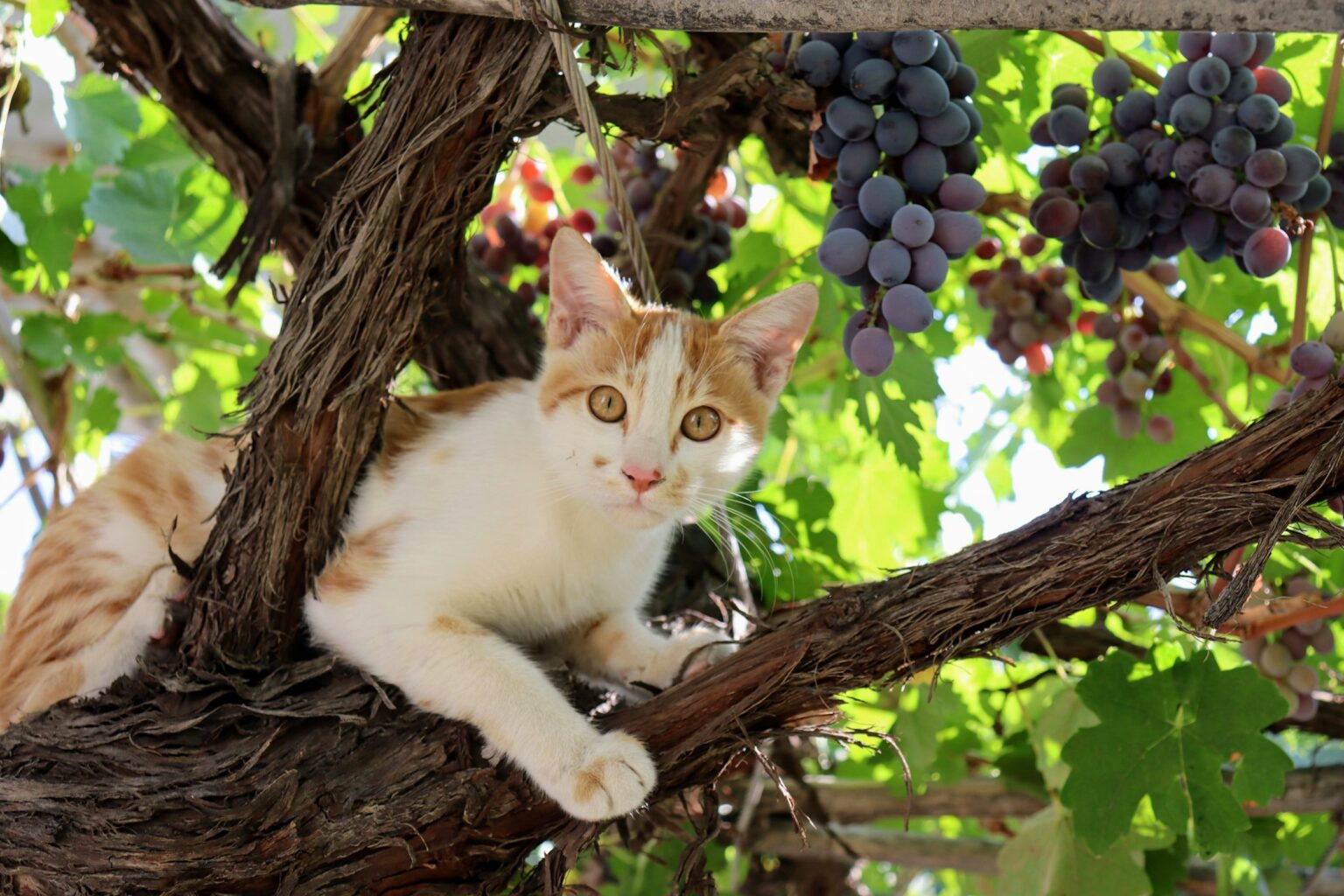
Grapes are one of the most famous crops in the world. Bioactive compounds and nutrients of these fruits, irrespective of the different varieties, are favorable for humans. Many research studies have revealed diverse positive properties of grapes, such as antioxidants, anti-inflammatory properties, and so on. We can eat grapes as a fruit and grown them as a raw material for several products, including wine, grape juice, and raisins. Today, we’re going to see if our cats can reap the health advantages offered by grapes as we do. Or are grapes dangerous for cats? If you have a cat, you should know this.
Are Grapes Safe For Cats?
While cats are carnivores, they sometimes eat plant-based products such as fruits. Just be careful not to give your cat the wrong fruit; otherwise, it can cause some health problems. Hence, knowing the safe food for cats is very important. Pets can have food cravings or may accidentally eat a product that contains grapes. What then? Can cats eat grapes?
No, cats cannot eat grapes. Experts have reported these fruits can be dangerous to cats. Most studies have been done on dogs, but cat owners must be careful, too. Fresh or processed grapes are toxic to cats. Read on so you know why these fruits are bad for your cat.
Grapes Risks
Most of the time, pets like dogs and cats do not eat anything plant-related. However, there are a number of reasons why a pet might be interested in plants: boredom and curiosity, amongst many others. The owners’ ignorance causes some cases of poisoning in pets. So remember that cats should not eat grapes. However, the lack of well-documented reports on cats does not eliminate the risk of these fruits being poisonous to them, based on the research findings for dogs. This is likely due to a more finicky cat palate.
Nevertheless, since your cat can consume foods containing grapes, a poison hazard also exists. Consequently, ingesting even a small amount of these fruits may be alarming. These poisoning symptoms can appear within 24 hours of eating, including vomiting and diarrhea. Grapes also cause kidney toxicity in animals, causing organ failure. Felines also should not consume grapes because they are sugary and could cause hypercalcemia. Hence, it is wiser to avoid grapes near cats and not jeopardize their health.
What About Raisins?
Cats cannot eat grapes. All types of this fruit can be toxic to animals. Dried grapes, i.e., raisins, have also been associated with food poisoning. Also, raisins pose a choking hazard for cats as they are very small in size. You have to be cautious with these products! This also applies to drinks. Grape juice is another pet poison. Giving wine to cats and dogs is especially forbidden because the alcohol is very dangerous to them.
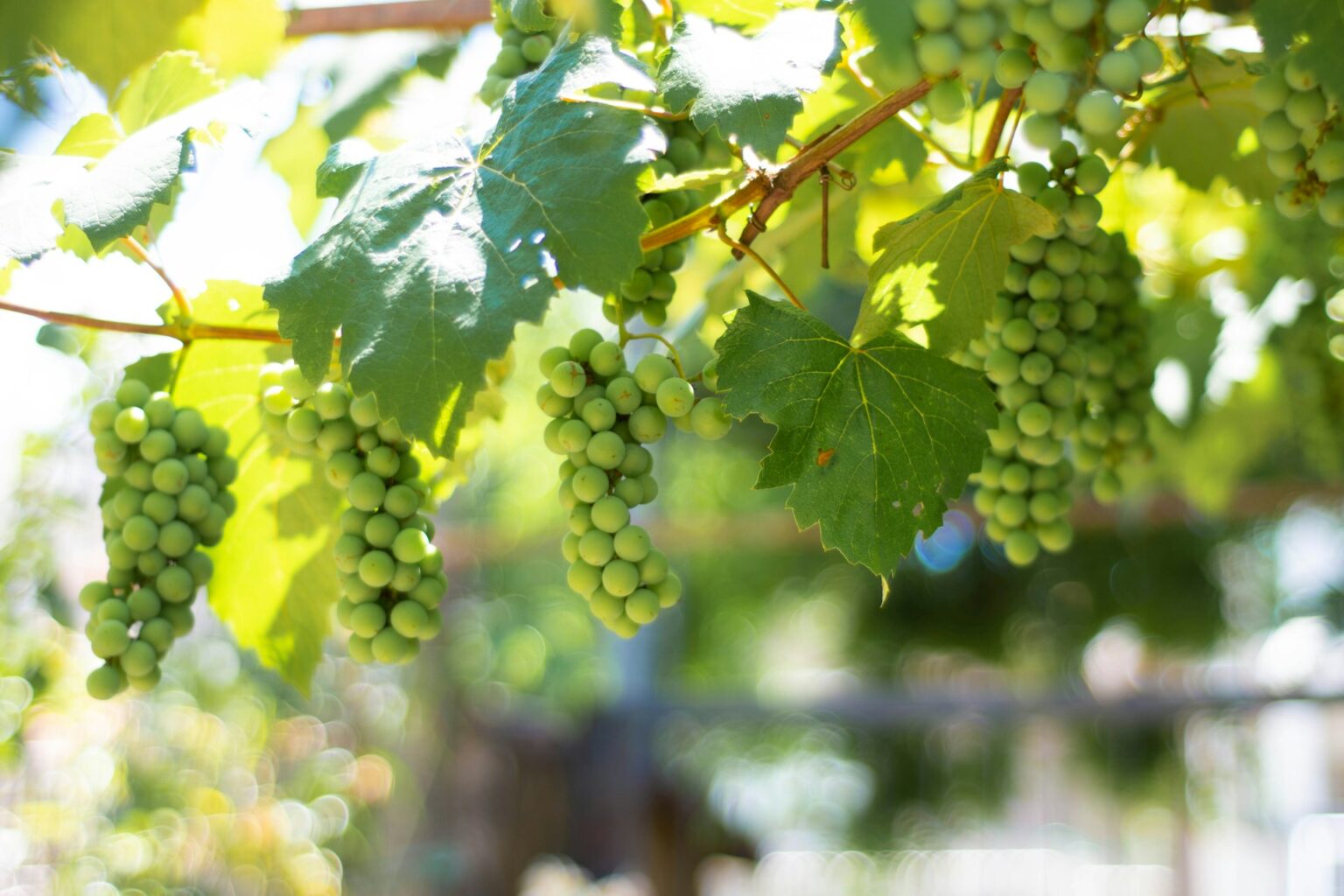
Summary – Can Cats Eat Grapes?
Cats do not find grapes so attractive. Hence, no studies have been performed, and poisonings have not been reported. Regardless, because of the well-documented considerable risk of dogs consuming grapes, it is generally accepted that cats should not eat grapes either. Symptoms can appear after eating fresh grapes and assorted processed grape products. This means cats should also not be eating raisins or drinking grape juice. Your cat might accidentally eat a product containing grapes or raisins. Please be aware that such situations can put cats at risk of health problems. If in doubt, speak to your vet.
Source
- Cristina Cortinovis, Francesca Caloni (2016). Household Food Items Toxic to Dogs and Cats.
https://pmc.ncbi.nlm.nih.gov/articles/PMC4801869/#S4
